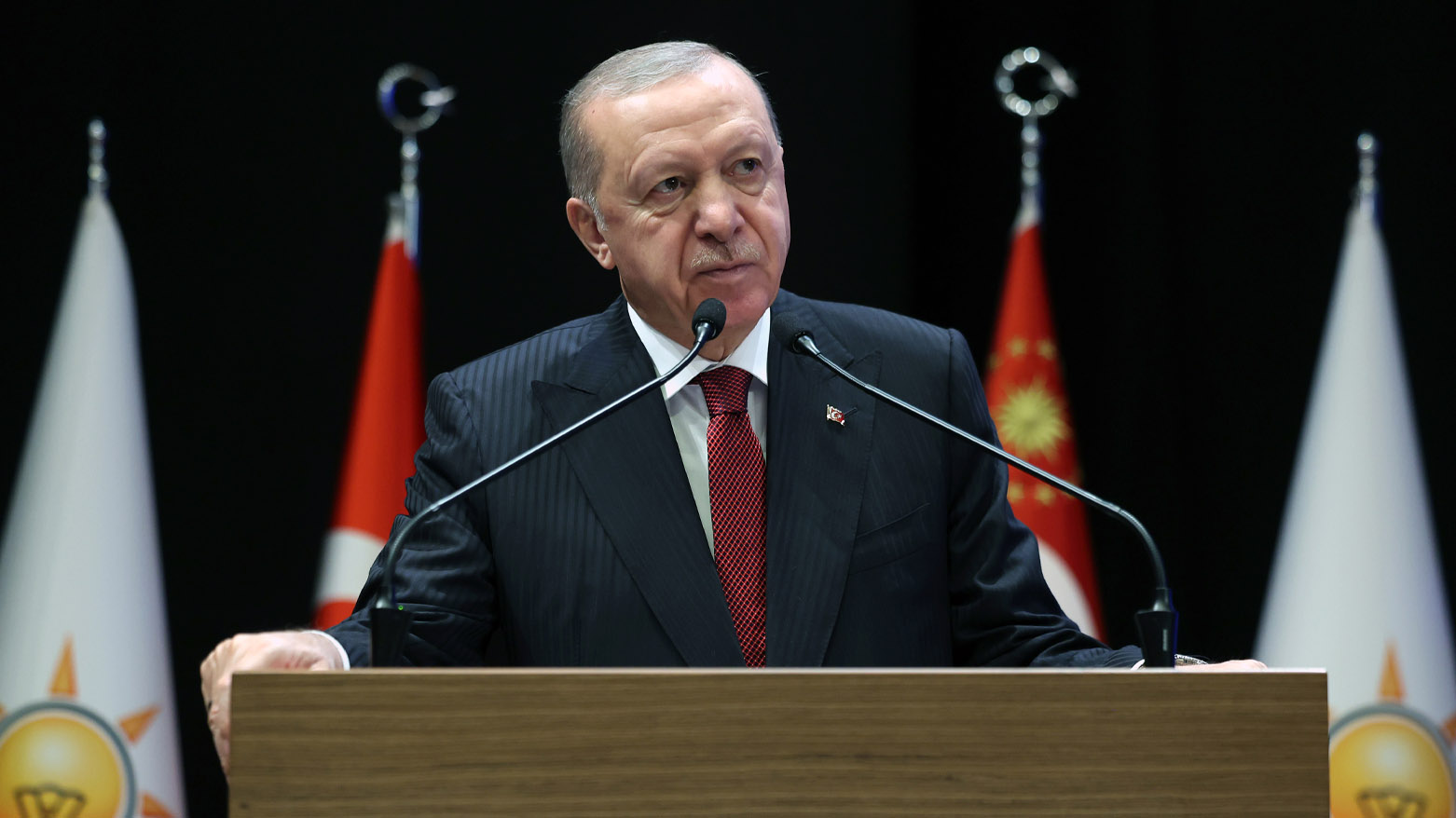Recep Tayyip Erdogan: Türkiye Enters a New Phase in Peace Process
Erdoğan announced Türkiye is entering a new phase in the peace process, supporting the DEM Party's proposal to read Abdullah Öcalan's parliamentary message and affirming respect for court rulings on Selahattin Demirtaş. The announcement follows his meeting with the DEM Party's İmralı delegation.

ERBIL (Kurdistan24) – Turkish President Recep Tayyip Erdogan announced on Wednesday that Türkiye is entering a new phase in the peace process, expressing support for a proposal by the Peoples' Equality and Democracy Party (DEM Party) to read the message of imprisoned PKK leader Abdullah Ocalan in parliament and emphasizing commitment to court rulings regarding former HDP co-chair Selahattin Demirtas.
President Erdogan said that Türkiye has reached a “critical and transformative stage” in the national peace process and called on all political sides to act responsibly and engage constructively in upcoming discussions. Speaking to members of the ruling Justice and Development Party (AKP) on Nov. 5, 2025, the president revealed that last week he held “a constructive and fundamental dialogue” with senior figures from the pro-Kurdish DEM Party.
“They made a proposal to allow the reading of Abdullah Ocalan’s statement—regarding the PKK’s disarmament—before a parliamentary commission,” Erdogan said, adding that “all parties should participate in this meeting.”
He stressed that the process had entered “a reflective phase,” requiring all stakeholders to show accountability and cooperation. “It appears we have reached a critical stage in the peace process. We must all take responsible steps and fulfill our duties,” he said, underlining the importance of inclusive dialogue among all relevant actors, “even those with differing perspectives.”
President Erdogan also commented on remarks made by Nationalist Movement Party (MHP) leader Devlet Bahçeli regarding the possible release of Selahattin Demirtas, the imprisoned former co-chair of the Peoples’ Democratic Party (HDP).
“Türkiye is a state governed by the rule of law. Whatever decision the judiciary makes, we are bound by it,” Erdogan told reporters following his meeting with party members.
Bahçeli had said during his party’s parliamentary group meeting on Tuesday that “the legal process has reached its conclusion and Demirtas’s release will be auspicious.”
On Nov. 4, Bahçeli also spoke about the “new peace process” and the potential release of Abdullah Ocalan, the imprisoned leader of the Kurdistan Workers’ Party (PKK), and Selahattin Demirtas.
On the same day, the DEM Party issued a statement disclosing the results of its recent meeting with Ocalan on Imrali Island. The party described the encounter as “highly constructive,” lasting nearly three hours.
According to the statement, both sides discussed several key issues, most notably the latest developments concerning the renewed peace process in Türkiye and the Kurdish regions. The Imrali delegation presented a number of essential points, emphasizing the need for a peaceful and comprehensive solution to the Kurdish question and for the restoration of trust between Kurds and Turks.
The statement also called for a greater focus on the historical and sociological dimensions of the peace process and reiterated that any resolution should address current challenges while laying the groundwork for a lasting legal and constitutional settlement.
To this end, the delegation proposed establishing a permanent reconciliation mechanism that could serve as a foundation for democratic reforms and the strengthening of civil rights—an initiative described as essential for consolidating Türkiye’s democratic system.
The latest developments follow a series of quiet but consistent diplomatic efforts to resume dialogue over the Kurdish question. On Oct. 30, 2025, President Erdogan received the DEM Party’s “Imrali delegation” for the third time, underscoring Ankara’s interest in maintaining open communication channels.
The meeting was described as part of ongoing efforts to reach a peaceful and constitutional resolution to long-standing issues concerning Türkiye’s Kurdish population.
President Erdogan’s acknowledgment of a “new phase” in the peace process and his openness toward parliamentary discussion of Ocalan’s message signal a potential recalibration in Türkiye’s approach to one of its most complex domestic challenges.
While details of the process remain closely guarded, the convergence of statements from the AKP, MHP, and DEM Party has sparked cautious optimism that a renewed dialogue—focused on peace, coexistence, and rule of law—may once again take shape in Türkiye’s political landscape.